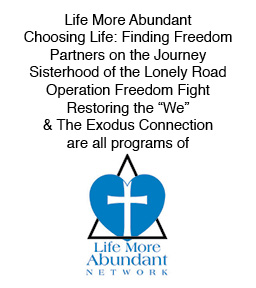Dealing with Loss
Forgiveness—when someone has hurt us. (Letting Go)
Confession/Repentance—when WE did something wrong. (God’s Grace)
And today:
Grieving—when we have lost something that‘s important to us.
Most people automatically associate “grief” with the death of a special person, pet or relationship. but, in truth, grieving is necessary whenever we are deprived by choice or by chance, of anything we have cherished deeply. It doesn’t matter what or who has been lost, we must go through the grieving process before we can truly accept the loss and find serenity and peace of mind.
Our losses come in many forms. They can be tangible things like a cherished keepsake or a valuable possession, or they can be virtually invisible like the loss of a dream, a relationship, a freedom, an identity or a purpose. Some come from the well-planned and much-anticipated change of moving to a new town, graduating or starting a different career and leaving the old familiar life behind; others are the consequences of totally unexpected accidents, illnesses or natural disasters. Losses may have their source in recent situations or in long ago childhood trauma and deprivations. Even the little “no-big-deal” things count. If they aren‘t dealt with properly, an accumulation of small losses can have the same devastating impact as a large castastrophic loss.
The effects of these losses will never go away until they are resolved in our heart and mind. Time alone does not heal. Grieving is the intentional process of giving honor and saying goodbye to something that was important to you. It is a healthy response to what, at one time, was a very difficult occurrence in your life.
Refusing to grieve is likely to slow down or stop our personal growth, keep us from healthy bonding with new people, and squelch our ability to fully enjoy life. In many cases chronic sickness or depression, addictions, obesity, “endless” rage or sadness, relationship problems and low self-worth can also find their roots in unfinished or frozen grief.
In the next post we’ll look at the various stages of grief and talk about how to begin that very important process.
“Very truly I tell you, you will weep and mourn while the world rejoices. You will grieve, but your grief will turn to joy.” — John 16:20


Leave A Response